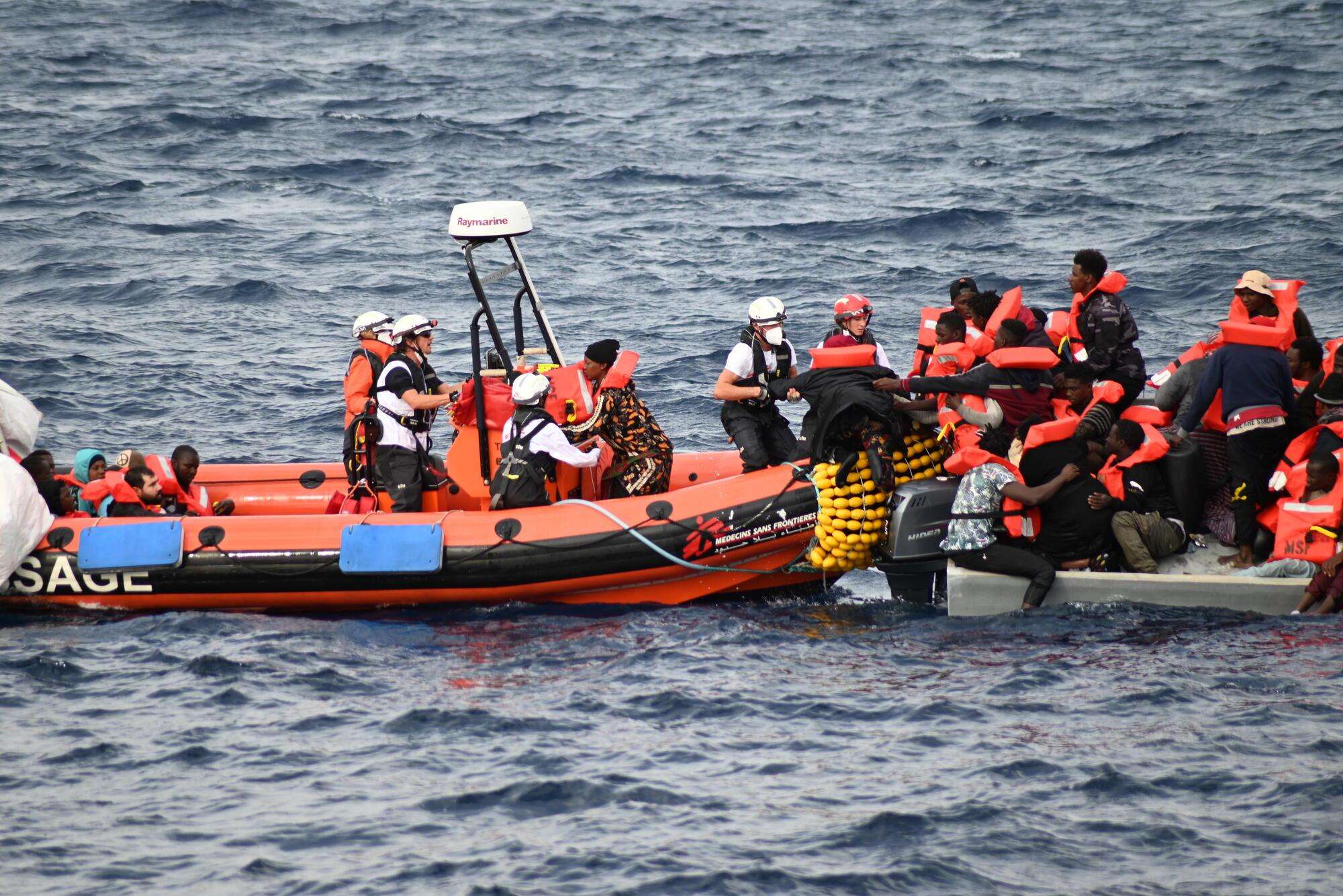CENTRAL MEDITERRANEAN/NEW YORK, NOVEMBER 17, 2021–Ten people were found dead—believed to have suffocated from fuel fumes—on the lower deck of a severely overcrowded wooden boat during a difficult rescue operation about 30 nautical miles from the Libyan coast in the Central Mediterranean Sea, said the international medical humanitarian organization Doctors Without Borders/Médecins Sans Frontières (MSF) Wednesday. MSF’s team on board the Geo Barents rescued 99 survivors from the boat on November 16.
"It took us almost two hours to retrieve [the bodies] and to bring them on board, so [that] they can have a dignified burial [when they arrive] onshore," said Fulvia Conte, MSF deputy search and rescue team leader on board the Geo Barents. “It [is] horrific and infuriating. This is another tragedy at sea that could have been avoided,”
After being alerted by Alarm Phone—a service to support people in danger at sea—and Seabird—a civilian organization that conducts aerial operations to spot boats in distress—the Geo Barents reached the boat too late to prevent this tragedy. It was a challenging rescue. After many hours rescuing people from the wooden boat, survivors informed the MSF team that there were more people on the lower deck who were unresponsive. After 99 people were brought safely on board the Geo Barents, the rescue team found the bodies of 10 people. Survivors told the MSF team that these people had spent more than 13 hours on the overcrowded lower deck of the boat.
“On a day like this, when we have to bring 10 dead bodies on board, we are once more witnessing Europe’s unwillingness to provide the much needed dedicated and proactive search and rescue capacity in the Central Mediterranean,” said Caroline Willemen, MSF project coordinator on board the Geo Barents. “People endure horrific human rights abuses in Libya and often their only escape is to flee and take an incredibly dangerous journey across the Central Mediterranean.”
Abdoulaye* was one of the last survivors to leave the wooden boat. “Let me see their bodies,” he said as soon as he boarded the Geo Barents. “These are my brothers, we come from the same place, we went through Libya together. I need to tell their families they are dead. Please let me see them.” His voice trembled and he was shaking.
In less than 24 hours, on November 15 and 16, the MSF team performed three rescues in international waters in the Maltese and Libyan search and rescue zones, bringing 186 people safely on board the Geo Barents. Among the survivors are 61 minors—the youngest only 10 months old. Those rescued come from a range of countries including Guinea, Nigeria, Ivory Coast, Somalia, and Syria. Many of them have had horrific experiences in Libya, which is where their small wooden boat embarked.
Although the rescued people cried out of relief and joy when they arrived on board the Geo Barents, they showed signs of acute stress and trauma, and most people are terrified. Among the survivors, some had to identify the dead body of a younger brother or of a friend who perished in the lower deck of the boat just a few hours earlier.
“[This] has become the deadliest migration route and it is shameful,” said Willemen. “With 186 survivors on board, including relatives of some of the deceased people, and people who travelled for hours on the lower deck of the boat [alongside] dead bodies, the Geo Barents [is] urgently looking for a place of safety to disembark this group of extremely stressed and likely traumatized people.”
Since launching search and rescue activities in 2015, MSF has sent medical teams on board eight ships, at times in partnership with other organizations. MSF teams have helped to rescued more than 82,000 people. The Geo Barents is currently MSF’s sole search and rescue ship, which launched operations in May 2021. The vessel is currently on its fifth rotation. An estimated 1,225 people died or went missing while attempting the dangerous journey across the central Mediterranean so far this year—22,825 since 2014. Today we add 10 more people to this horribly high number.
*Name changed to protect anonymity.
How you can help
Not everyone can treat patients in the field. But everyone can do something.
Some humanitarian crises make the headlines—others don’t. Unrestricted support from our donors allows us to mobilize quickly and efficiently to provide lifesaving medical care to the people who need it most, whether those needs are in the spotlight or not. And your donation is 100 percent tax-deductible.




